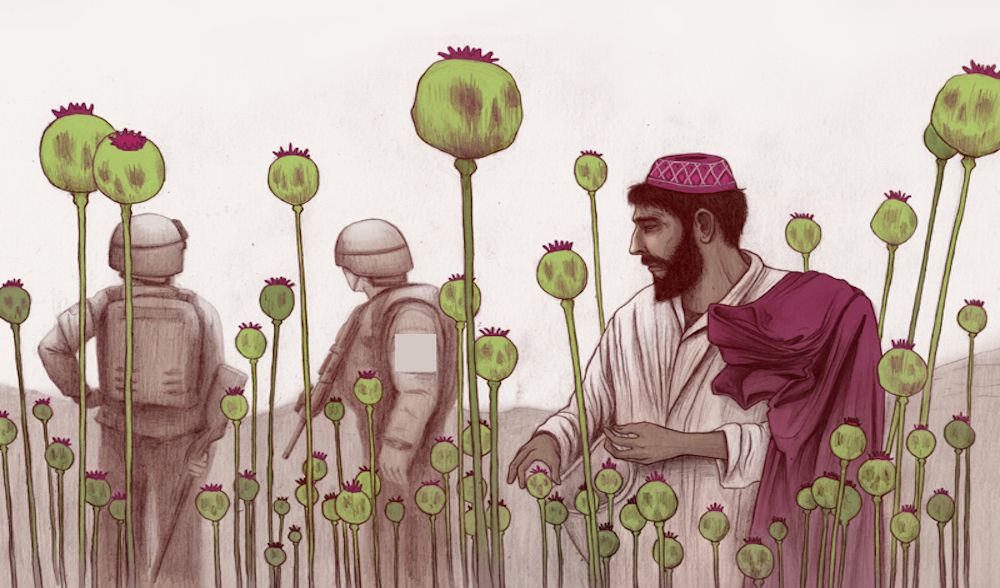TESSA MULLER WRITES — Afghanistan’s economy is hugely dependent on the illicit poppy trade. This was true throughout the 20-year war with the US, and it continues to be true in the aftermath of U.S. troop withdrawal. One hundred days after the official withdrawal date, the Taliban now controls the government of Afghanistan, and the economy of the country is more dependent on the illicit poppy trade than ever. According to Gretchen Peters, author of ‘Seeds of Terror: How Heroin Is Bankrolling the Taliban and Al-Qaeda,’ “Afghanistan cannot survive without opium. It is simultaneously killing Afghanistan while also keeping a huge number of people alive.”
Ostensibly, the Taliban opposes this trade. It is a militantly Islamist group, on paper, that opposes the cultivation, sale, and use of drugs. Yet its members are fully aware that Afghanistan’s farmers are heavily reliant on the black-market poppy trade. On August 17, during his first televised news conference, Taliban spokesman Zabihullah Mujahid petitioned for “international assistance” to provide farmers with alternative crops to poppies. Mujahid promised that the Taliban did not intend to turn Afghanistan into a “narco-state,” but he offered few concrete details on how the new government planned to generate revenue, especially considering the sanctions that have been imposed on Afghan exports in response to the Taliban’s rise to power.
According to Giada Ferrucci, a PhD Candidate in Media Studies at Western University, “Afghanistan will [most likely] remain a huge illicit opiate supplier, producing more than 90 per cent of the world’s heroin. Controlling the country will also offer the Taliban access to airlines, the state bureaucracy and banks, facilitating the opium trade and money-laundering.” She predicts that, as the Taliban, warlords and corrupt public officials vie for drug profits and power, even more instability in the country will be fueled.
The fate of Afghanistan going forward is, in large part, tied to the illicit poppy trade. International aid efforts, then, should be targeted towards breaking the country’s dependence on the crop. Organizations such as the UN could prioritize investments in the farming of non-opium crops, and the western countries that are so dependent on Afghanistan for their heroin could focus on demand-side interventions in the illicit drug trade.
Something needs to be done. Otherwise, Afghanistan’s dependence on the cultivation and trade of opium may break the country. To quote former Afghan president Hamid Karzai: “Either Afghanistan destroys opium, or opium will destroy Afghanistan.”

